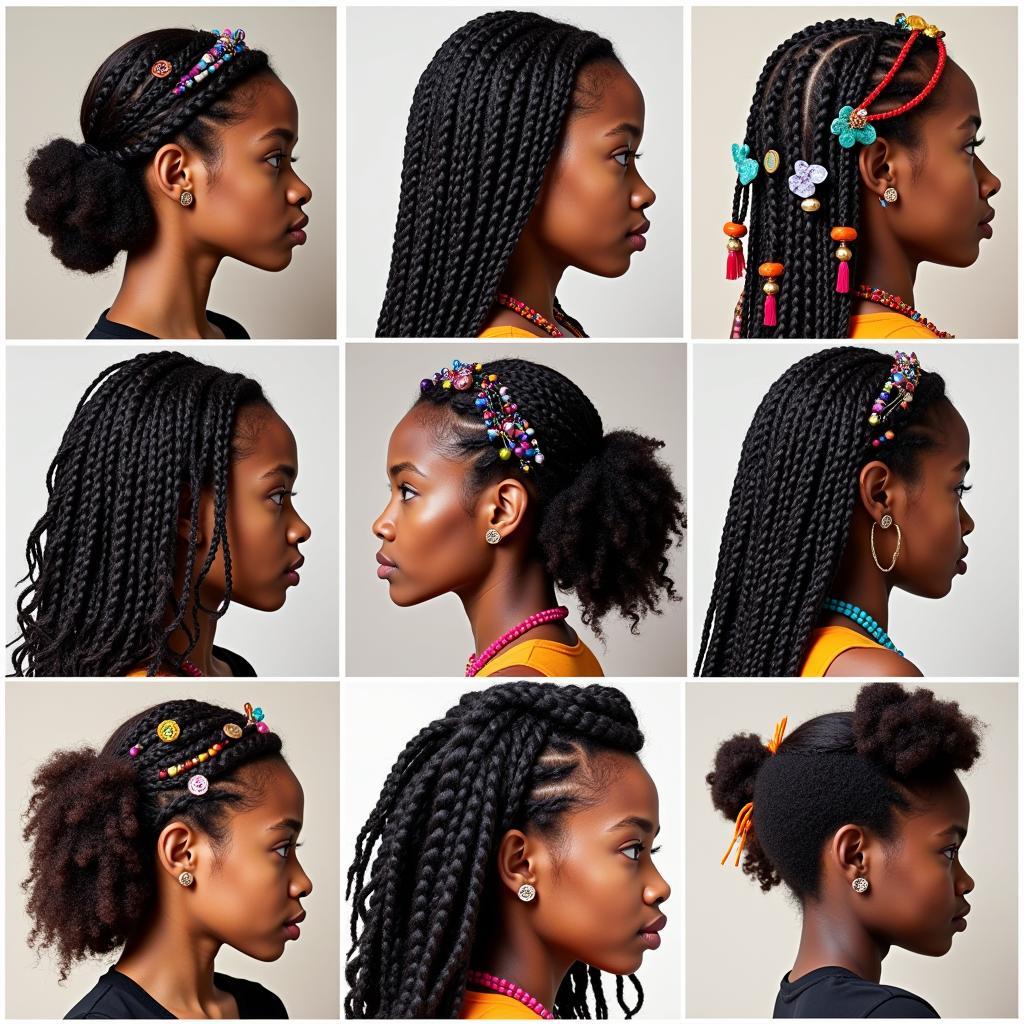A Comprehensive List of African American Names: Meaning, Origin, and Significance
African American names have a rich history and cultural significance, reflecting the unique experiences and heritage of this vibrant community. From traditional African names to names that symbolize resilience and hope, the names of African Americans offer a window into their past, present, and future. This article delves into a comprehensive list of African American names, exploring their meanings, origins, and the stories behind them.
Exploring the Significance of African American Names
African American names are more than just identifiers; they carry a deep-rooted meaning and represent the rich tapestry of African American culture. These names often reflect a connection to African heritage, the struggles and triumphs of the African American experience, and the aspirations for a better future.
Dr. Abena Agyei, a renowned historian specializing in African American cultural studies, highlights:
“African American names are a powerful testament to resilience, identity, and the enduring spirit of a people who have overcome unimaginable obstacles. They are not just names but symbols of a rich and vibrant history.”
Popular African American Names and Their Meanings
The most popular African American names often derive from African languages or have historical significance within the African American community. Here are some examples:
Male Names:
- Malik: Arabic origin, meaning “king,” often associated with strength and leadership.
- Aiden: Irish origin, meaning “little fire,” signifying passion and determination.
- Ethan: Hebrew origin, meaning “strong,” representing resilience and fortitude.
- Zion: Hebrew origin, meaning “God’s favor,” signifying hope and blessings.
- Kaleb: Hebrew origin, meaning “dog,” associated with loyalty and protection.
Female Names:
- Aaliyah: Arabic origin, meaning “exalted” or “noble,” representing high ideals and aspirations.
- Zuri: Swahili origin, meaning “beautiful,” reflecting inner beauty and grace.
- Aisha: Arabic origin, meaning “alive” or “life,” signifying vibrancy and energy.
- Maya: Sanskrit origin, meaning “illusion,” associated with creativity and imagination.
- Naomi: Hebrew origin, meaning “pleasantness,” representing kindness and joy.
Tracing the Evolution of African American Naming Practices
African American naming practices have evolved over time, reflecting the changing social and political landscape. From the days of slavery, where enslaved Africans were often given European names, to the rise of the Black Power movement, which saw a resurgence in traditional African names, naming trends have been shaped by historical events and cultural shifts.
The 1960s and 1970s saw a significant movement towards African names, with names like “Kwame,” “Aisha,” and “Kofi” gaining popularity. This shift reflected a growing consciousness of African heritage and a desire to reclaim cultural identity.
The Importance of Names in African American History
Throughout history, African American names have played a significant role in shaping identity, resistance, and cultural expression. The names of prominent figures like Martin Luther King Jr., Malcolm X, and Rosa Parks have become synonymous with the fight for equality and justice.
The use of African names in the context of the Civil Rights Movement served as a powerful symbol of defiance and a rejection of oppressive naming practices.
Choosing a Name for Your Child: Finding Meaning and Inspiration
Choosing a name for your child is a significant decision, especially for African American parents. Here are some tips to consider when selecting a name for your child:
- Embrace Your Heritage: Consider names that reflect your cultural heritage and family lineage.
- Explore Meaning: Choose names that carry positive meanings, symbolizing strength, resilience, and hope.
- Consider Pronunciation and Spelling: Choose names that are easy to pronounce and spell to avoid future complications.
- Think Beyond Trends: Select a name that is unique but not too uncommon to ensure it remains relevant throughout your child’s life.
Frequently Asked Questions About African American Names
Q: Why are African American names so significant?
A: African American names are more than just identifiers; they reflect a deep-rooted connection to African heritage, the struggles and triumphs of the African American experience, and the aspirations for a better future.
Q: How do I find the meaning of an African American name?
A: There are various online resources and books that offer comprehensive lists of African American names and their meanings. You can also consult with cultural organizations and scholars specializing in African American history and culture.
Q: What are some popular African American names?
A: Some popular African American names include Aaliyah, Malik, Zion, Aiden, and Zuri. These names often have African origins or hold historical significance within the African American community.
Q: How have African American naming practices evolved over time?
A: African American naming practices have evolved significantly, reflecting the changing social and political landscape. From the days of slavery, where enslaved Africans were often given European names, to the rise of the Black Power movement, which saw a resurgence in traditional African names, naming trends have been shaped by historical events and cultural shifts.
Q: What is the significance of African American names in the Civil Rights Movement?
A: The use of African names in the context of the Civil Rights Movement served as a powerful symbol of defiance and a rejection of oppressive naming practices. Names like “Kwame,” “Aisha,” and “Kofi” became widely embraced, representing a reclaiming of cultural identity and a resistance against historical oppression.
In Conclusion: Embracing the Legacy of African American Names
African American names are a powerful testament to the rich history, resilience, and evolving identity of this vibrant community. From traditional African names to names that symbolize hope and strength, the names of African Americans offer a window into their journey and their enduring spirit. As we delve deeper into the stories behind these names, we gain a better understanding of the African American experience and the legacy that continues to shape their future.


